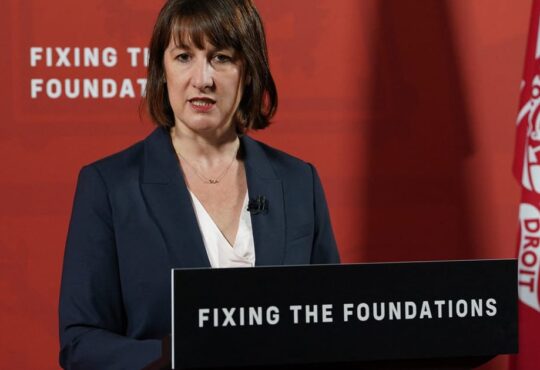
Overview
On 11 July 2023, HM Treasury published the Draft UK SR SI1, updating the draft statutory instrument published as part of the “Edinburgh Reforms” on 9 December 2022 (the Dec 2022 Draft SR SI), and the UK SR Policy Note2. The Draft UK SR SI is part of HM Treasury’s programme to deliver a Smarter Regulatory Framework for financial services tailored to the UK.
As a recap, the aim of Securitisation Regulations 2023 statutory instrument (the SR SI) is to create a regulatory framework for the UK to replace Regulation (EU) 2017/2402 as it forms part of UK domestic law as “retained EU law” by operation of the European Union (Withdrawal) Act 2018, as amended, and as amended by the Securitisation (Amendment) (EU Exit) Regulations 2019 (the UK Securitisation Regulation). In addition to the operative provisions of the SR SI, the SR SI empowers the Financial Conduct Authority (FCA) and the Prudential Regulation Authority (PRA) to create rules to flesh out the UK securitisation regulatory framework (see “UK Securitisation Regulation FCA Consultation Paper” and “UK Securitisation Regulation FCA Consultation Paper“).
Key Developments
The Draft UK SR SI has made limited changes to the Dec 2022 Draft SR SI as follows:
- Scope of institutional investor in relation to Alternative Investment Fund Managers (AIFMs) (Regulation 3(1) (Interpretation), “institutional investor”) – the Draft UK SR SI narrows the scope of the definition of “institutional investor”, so that UK due diligence requirements only apply to UK AIFMs and not to AIFMs with registered offices outside the UK (which the current definition of institutional investor can be interpreted as including).
- FCA direction power for Designated Activities Regime (DAR) activities (Part 2 (Designated Activities)) – the Draft UK SR SI gives the FCA a power of direction (including examples of such directions) for authorised and unauthorised firms which engage in designated activities related to securitisation and which are in breach of (or likely to breach) relevant designated activity rules.
- Ban on the establishment of securitisation special purpose entities in certain overseas jurisdictions (Regulation 9 (Restrictions on establishment of a securitisation special purpose entity)) – the ban on establishing securitisation special purpose entities (SSPEs) in high-risk or non-cooperative jurisdictions has been clarified in the Draft UK SR SI so that the originator and sponsor in relation to a securitisation must ensure that this ban is not breached (i.e. the originator needs to ensure that the SSPE is in an appropriate jurisdiction). It has also been clarified that institutional investors are prohibited from investing in securitisations with SSPEs established in such high-risk or non-cooperative jurisdictions.
- Framework for recognising simple, transparent and standardised (STS) equivalent non-UK securitisations (Regulation 14 (Designation of country or territory in relation to securitisations)) – the Draft UK SR SI provides that HM Treasury may, if it is satisfied that the law and practice which applies in a country or territory has equivalent effect (taken as a whole) to the UK STS securitisation laws, designate that country or territory such that securitisations of that description from such country or territory will be treated for all purposes as the same as STS securitisations in the UK.
- Third party verification and Securitisation Repository Standardisation (Part 7 (Registration of third-party verifying STS compliance)) – the Draft UK SR SI renames the process for third party verification “authorisation” as “registration” in line with securitisation repository registration, to distinguish from authorisation under Part 4 of the Financial Services and Markets Act 2000 (FSMA).
- Restatement and reforms to due diligence requirements for occupational pension schemes (Chapter 2 (Occupational pension schemes)) – the Draft UK SR SI restates due diligence requirements which apply to occupational pension schemes (OPSs) and makes reforms to clarify them. The UK SR Policy Note explains that certain of the reforms are to make them clearer and “more principle-based”. In particular, the applicable due diligence requirements for investing in an overseas (i.e. third country) securitisation no longer require verification that the information provided by originators, sponsors or SSPEs is substantially the same as if it were provided with Article 7 of the UK Securitisation Regulation. Instead, OPSs will need to verify that originators, sponsors or SSPEs, whether located in or outside the UK, have provided sufficient disclosures to enable them to assess risks and that they have committed to make further information available. HM Treasury intends to include in the final SR SI a breakdown of the minimum information and how often it must be provided (which an OPS must check for), and an indicative list of such minimum information is set out in the Annex to the UK SR Policy Note. The UK SR Policy Note also notes that HM Treasury will update the exact legal drafting after the publication of the FCA and PRA draft rules which will deliver this change for other institutional investors (see “UK Securitisation Regulation FCA Consultation Paper” and “UK Securitisation Regulation FCA Consultation Paper“). From this it seems clear that the HM Treasury intends that the due diligence obligations for all institutional investors will be a “principle-based approach” to help reduce the regulatory barriers which would prevent investors investing in third country securitisations.
- Repeal of Article 30 of the UK Securitisation Regulation – the requirement in Article 30 of the UK Securitisation Regulation for regulators to monitor risks is repealed, as the FCA and PRA maintain monitoring arrangements in line with their statutory objectives.
- Repeal of the re-securitisation permissions process – the UK SR Policy Note notes that the power and process for the FCA and PRA to grant firms permission to issue re-securitisations will be repealed without replacement by the SR SI. HM Treasury intends to provide the regulators with certain powers to modify or disapply rules under section 138BA of the FSMA, which may be used as a replacement for this process as well as for other purposes.
Next Steps
The UK SR Policy Note notes that HM Treasury intends to lay the SR SI before Parliament prior to the end of 2024. The UK SR Policy Note states that HM Treasury will consider any technical comments on the Draft UK SR SI by 21 August 2023. Given the limitation of consideration to technical comments, it is likely that the Draft UK SR SI is the form, subject to minor changes, that will be laid before Parliament.
Certain of the SR SI provisions, such as that which provides the regulators with powers, will come into force immediately after being made, with the remaining provisions coming into force at the same time as the repeal of the UK Securitisation Regulation and related retained EU law. It is also intended that the rules of the FCA and PRA will commence at the same time as such repeal. HM Treasury may lay a separate statutory instrument to provide for amendments to reflect such FCA and PRA rules, with consultations currently ongoing (see “UK Securitisation Regulation FCA Consultation Paper” and “UK Securitisation Regulation FCA Consultation Paper“).






